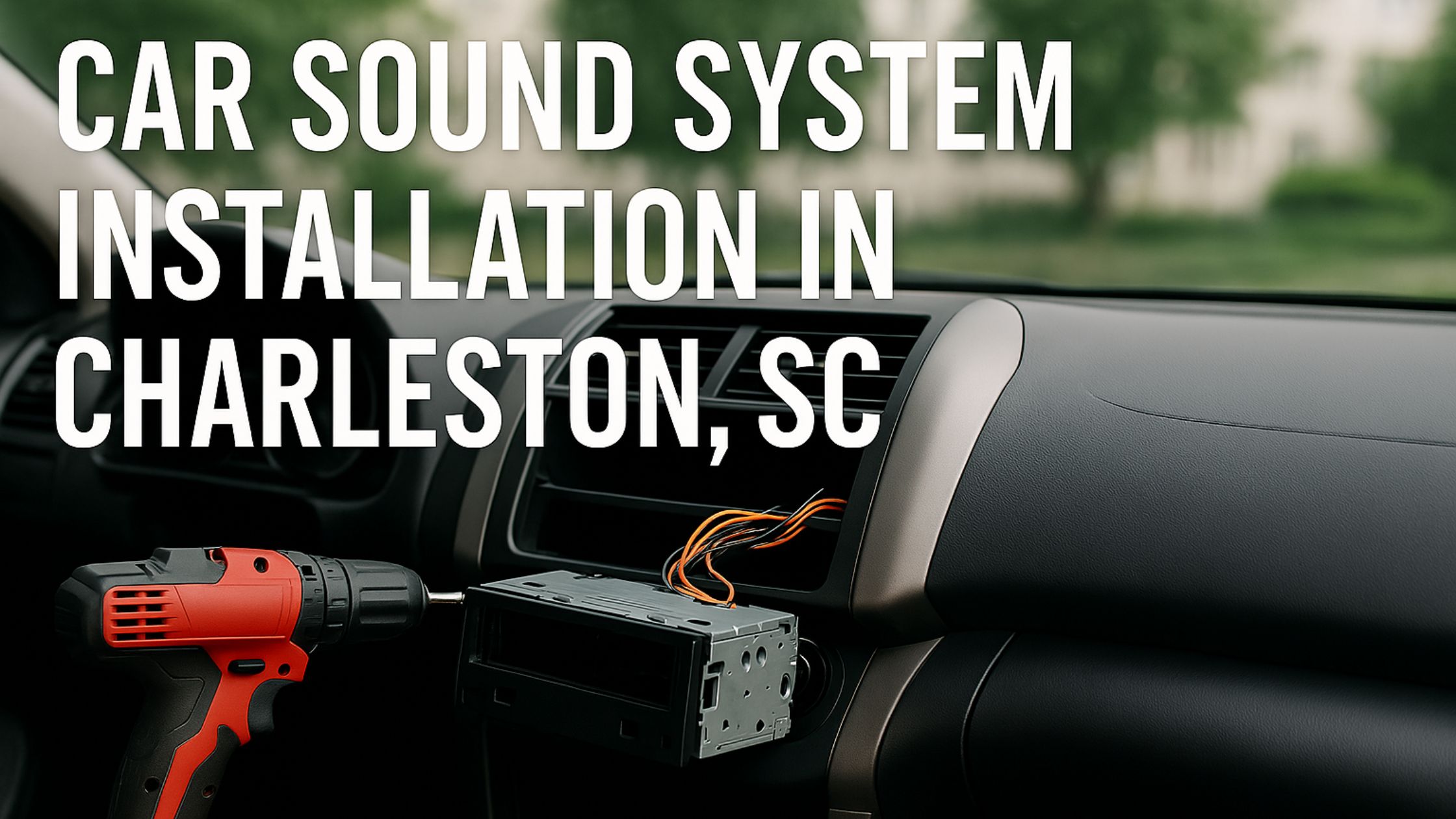
Car Sound System Installation in Charleston, SC
Car enthusiasts in Charleston appreciate a crisp, powerful audio experience on every drive. Upgrading a factory stereo to a custom sound system elevates in-car entertainment and boosts vehicle value. Professional car sound system installation is a tailored service that guarantees seamless integration and premium audio performance.
Drivers seeking a turnkey upgrade should understand the local service landscape. Charleston hosts a variety of installers, from boutique specialists to national chains. Comparing offerings, warranties and customer feedback is essential for a satisfying outcome and long-term reliability.
Defining Car Sound System Installation
Car audio installation Charleston encompasses the planning, component selection and professional fitting of audio equipment in a vehicle. This process tailors every detail from head unit compatibility to final acoustic tuning to the driver’s preferences. Understanding scope and steps helps motorists set realistic expectations and budgets. To explore the fundamentals in depth, see What is Car Sound System Installation?.
Core Components and Related Entities
Identifying key components ensures each upgrade aligns with performance goals. Below is a concise breakdown:
|
Component |
Function |
|
Head Unit |
Media source, controls, smartphone integration (Apple CarPlay, Android Auto) |
|
Amplifier |
Boosts signal power for speakers and subwoofers |
|
Speakers |
Midrange/treble reproduction, imaging and clarity |
|
Subwoofer |
Low-frequency bass extension in sealed or ported enclosure |
|
Wiring Harness |
OEM-specific connectors and power distribution cables |
|
DSP & Crossovers |
Equalization, time alignment, frequency routing |
|
Sound Damping |
Reduces panel resonance, improves sound isolation |
Entities such as acoustic design, signal processing, Bluetooth codecs, impedance matching, chassis fabrication and vehicle electrical systems all interplay to create a cohesive system tailored to each car model.
Comparison: OEM vs. Aftermarket Components
|
Feature |
OEM Components |
Aftermarket Components |
|
Price |
Lower initial cost |
Variable—budget to premium tiers |
|
Sound Quality |
Basic factory tuning |
High-fidelity presets and customization |
|
Integration |
Plug-and-play but limited functionality |
Requires expertise for optimal fit |
|
Upgrade Path |
Restricted by factory limits |
Wide brand and model options |
|
Acoustic Flexibility |
Fixed EQ and power handling |
Advanced DSP, custom enclosures |
Local Installation Process
Charleston’s professional installers follow a structured workflow. First, technicians audit the vehicle’s electrical system, confirming alternator capacity and battery health. Next, custom templates and CAD drawings ensure speaker and amp placement maximize cabin acoustics. Drivers benefit from real-time sound checks and tonal adjustments before finalizing the setup. To learn how this unfolds step by step, review How does car audio system installation work?.
Certified shops maintain clean workspaces, use weatherproof sealants on marine-grade installs and respect vehicle interiors. Many also offer mobile installation services for boats, RVs and powersports units, leveraging similar expertise in vibration control and water-resistant wiring.
Parts Required for Installation
A smooth installation relies on high-quality parts. Technicians typically source:
- Head units that support streaming, Bluetooth, USB and satellite radio
- Premium speakers (component and coaxial) with sealed surrounds
- Amplifiers matched to speaker impedance and power ratings
- Subwoofer enclosures built from MDF or fiberglass
- OEM-specific wiring harnesses and steering wheel control adapters
- Digital signal processors for tuning and time alignment
- Installation kits: brackets, trim rings and dash panels
For a comprehensive list of installation materials, visit What parts are needed to install a car sound system?.
Why Professional Installation Matters?
Attempting a DIY sound upgrade can lead to wiring errors, ground loops or blown fuses. Trained technicians possess:
- Expertise in automotive microprocessors (ECUs, infotainment modules)
- Specialized tools (power meters, SPL meters, oscilloscope)
- Knowledge of OEM safety systems (airbag, CAN bus networks)
- Custom fabrication skills for enclosures and mounting panels
- Warranty coverage on workmanship and parts compatibility
In Charleston’s humid climate, proper sealing against moisture and corrosion is crucial. Professionals ensure durable connections and optimal long-term performance.
Acoustic Tuning and Final Calibration
Fine-tuning is as important as parts selection. Acoustic treatment combats door panel resonance and standing waves. Technicians employ:
- Time alignment to synchronize speaker outputs
- Crossover setup for seamless frequency transitions
- Equalization to correct room modes and compensate for vehicle cabin irregularities
The result is balanced imaging, tight bass response and distortion-free volume levels that exceed factory standards.
Conclusion
Professional car sound system installation transforms everyday drives into immersive audio experiences. By combining high-quality components, precise acoustic tuning, and expert craftsmanship, drivers in Charleston can enjoy balanced imaging, powerful bass, and clear highs without risking electrical issues or warranty voids.
Ready to elevate your in-car entertainment? Visit the Audio Evolutions website to book a consultation and discover how Charleston’s leading experts can design and install a custom sound system tailored to your vehicle and preferences. Audio Evolutions provides unmatched service and support for every audio upgrade.
(FAQs) Frequently Asked Questions
1. How long does a full car sound system installation take?
A standard install with head unit, speakers, amplifier and subwoofer typically requires 4–6 hours. Custom fabrication or complex DSP tuning may extend time to a full day.
2. Can a factory stereo support aftermarket speakers?
Yes, but matching impedance and power handling is crucial. Many installers recommend adding an amplifier for distortion-free volume and extended frequency range.
3. Will adding a new system drain my battery?
Properly sized amplifiers and upgraded alternators prevent excessive draw. Technicians calculate total RMS power and recommend electrical upgrades if needed.
4. Is acoustic damping really necessary?
Absolutely. Damping materials reduce panel vibration and road noise, improving bass impact and overall clarity without raising volume.
5. Can steering wheel controls still work after installation?
Most professional shops use CAN bus adapters or programmable harnesses to retain factory functions, including steering wheel buttons, vehicle diagnostics and backup cameras.
Audio Evolutions is the trusted partner for car sound system installation and parts supply in Charleston, SC.
- Hits: 37